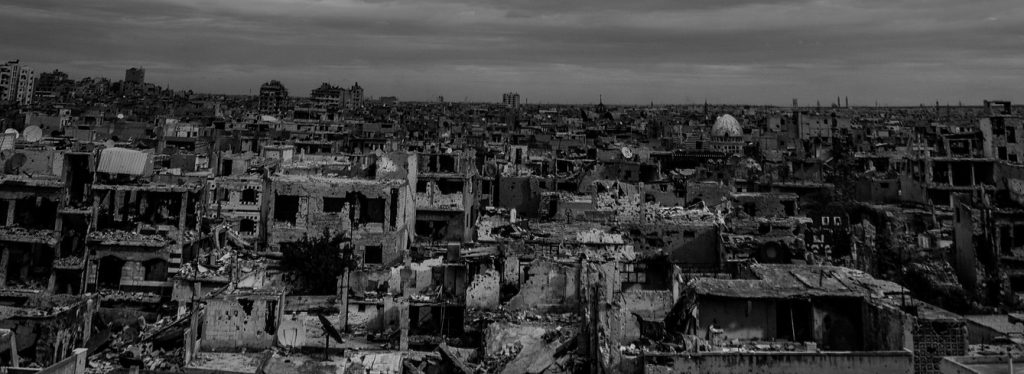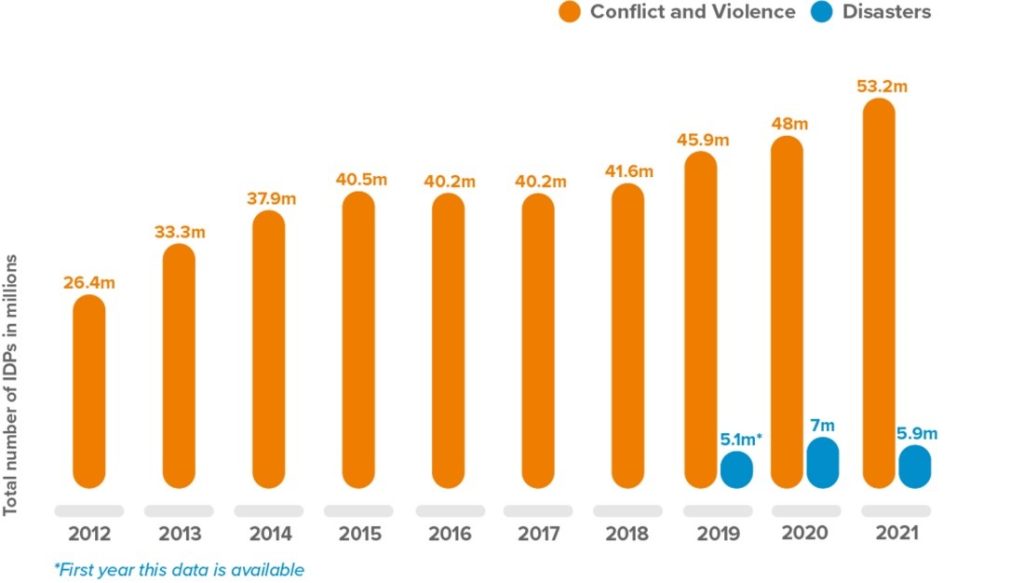
Armed conflict worldwide is at an all time high and becoming more protracted. At the end of 2021, approximately 90% of the global population in internal displacement was forced to flee as a result of conflict and violence. Displacement most frequently occurs when parties to a conflict breach their duty to protect civilians, when they fail to mitigate suffering and instead cause harm or – in the worst cases – commit deliberate atrocities.
Displacement causes extreme hardship, disrupting people’s lives and livelihoods, endangering communities and countries, and destabilizing entire regions. Under international law, States have the primary responsibility to protect and assist internally displaced people under their jurisdiction. And in armed conflicts, all parties to the conflict (including non-State armed groups) must provide assistance and protection to internally displaced people in the territories they control.
All too often, however, States lack properly resourced and funded laws, policies and systems to address these people’s needs. Those forced to flee their homes as a result of conflict and violence are generally subject to heightened vulnerability in a number of areas. Displaced persons suffer significantly higher rates of mortality than the general population. They also remain at high risk of physical attack, sexual assault and abduction, and frequently are deprived of adequate shelter, food and health services.
The overwhelming majority of internally displaced persons are women and children who are especially at risk, not least because those internally displaced tend to remain close to or become trapped in zones of conflict, caught in the cross-fire and at risk of being used as pawns, targets or human shields by the belligerents.

Key resources
- ICRC, Addressing Internal Displacement in Times of Armed Conflict and Other Violence, 2020.
- UNHCR, Story Map: Uprooted in their own land, 2020.
- UNHCR, Global Trends in Forced Displacement in 2020, 2021
Uppsala Conflict Data Programme, Armed Conflict by Type, 1946-2021, 2021